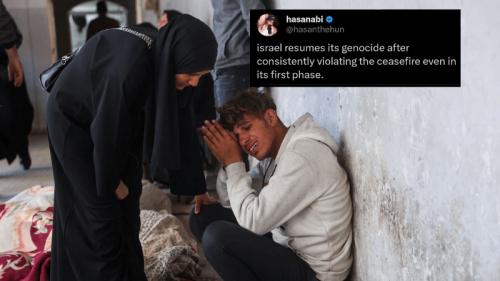ISLAMABAD: The government has expressed concern over what it claims that some participants of Azadi march of the Jamiat Ulema-i-Islam (JUI-F) are carrying prohibited arms and decided to maintain its writ during the opposition’s show of strength in the federal capital.
The issue of security during Azadi march was raised at a meeting of the federal cabinet presided over by Prime Minister Imran Khan on Tuesday. The meeting reiterated that the prime minister would never resign on the opposition’s demand.
“We have video clips of Azadi march in which some of the participants were carrying Kalashnikovs,” said Special Assistant to the PM on Information Dr Firdous Ashiq Awan at a press conference after the cabinet meeting.
She said it was decided in the meeting that the government would adhere to a recent agreement reached between the opposition’s Rehbar Committee and the local administration of Islamabad regarding the venue of the march, which started from Karachi on Oct 27 and will culminate and turn into a public meeting, and maintenance of public order.
Calling Azadi march a “Fitna march”, the special assistant said the government would deal with the agitators with an iron hand if they violated the agreement and tried to proceed to the Red Zone [the area which houses sensitive and important buildings like the Parliament House and the Supreme Court] or close to D-Chowk, where the Pakistan Tehreek-i-Insaf (PTI) had staged a sit-in for 126 days in 2014.
“Let them come to Islamabad and then we will see how to react,” she added.
“We have seen video clips of Maulana Fazlur Rehman while leading Azadi march and came to know that he was being accompanied by members of Ansarul Islam facing a ban. We cannot sit like a silent spectator if an unruly mob challenges the writ of the state,” Dr Awan said.
She said Maulana Fazl was not ready to accept the government and parliament despite the fact that his own son was a member of the National Assembly.
Nawaz Sharif’s case
Talking about the Islamabad High Court’s verdict on former prime minister Nawaz Sharif’s bail plea, Dr Awan said the government honoured the decision but at the same time expected that courts would give similar relief to all ailing and deserving inmates in jails.
Rejecting media reports about a possible ‘deal’ between the government and Nawaz Sharif, she, however, said: "Nawaz Sharif is said to be in bad health and we do not want to make a weak person weaker. We will fight only against the powerful," adding that Prime Minister Khan had already made it clear that there should be a clear difference between health [of ailing opposition leaders] and politics.
In reply to a question about the possibility of Mr Sharif’s treatment abroad, she said the government had so far not received any written request from him in this regard. “The decisions about health condition of the opposition leaders have to be taken by the doctors and courts concerned,” she said.
Published in Dawn, October 30th, 2019












































